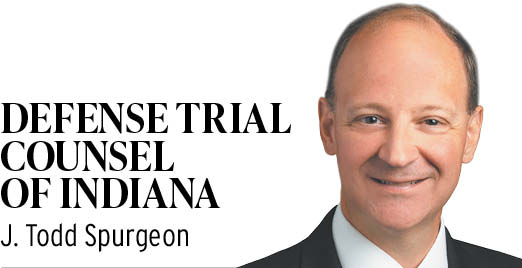Subscriber Benefit
As a subscriber you can listen to articles at work, in the car, or while you work out. Subscribe Now Exactly five years ago I wrote a piece focused on lawyer mental health. Since May is mental health awareness month and the first week of May is Well-Being in the Law Week, I am revisiting the topic to see if anything has changed.
Exactly five years ago I wrote a piece focused on lawyer mental health. Since May is mental health awareness month and the first week of May is Well-Being in the Law Week, I am revisiting the topic to see if anything has changed.
So much in society in general has changed in those five years, due in no small part to the COVID pandemic that upended everything for a time.
What about attorney mental health? According to the 2023 ALM and Law.com Compass Mental Health Survey of the Legal Profession, 49% of respondents felt that mental health problems and substance use were at a “crisis level” in the legal industry. This is up from 41% in 2019.
With respect to depression, 38% of respondents reported feeling depressed, as opposed to 31% in 2019. Seventy-one percent of respondents reported having anxiety in 2023, a 7% increase over 2019. All this despite a noted increase in efforts to build awareness of mental health issues in the legal field.
Our profession, with its adversarial nature and its focus on productivity and the billable hour, lends itself to an increased risk of mental health and substance use issues; and the general nature of our profession has certainly not changed in the last five years.
One striking result from the ALM Mental Health Survey was that nearly 70% of respondents felt that their personal relationships suffered as a result of being a part of our profession. That is an indictment from within. However, one bright spot was that 70% of the respondents felt their co-workers cared about their mental health.
Law is a noble profession, but it is lacking when it comes to the mental health of those who practice it. There is what has been described as a tension, if not an outright conflict, between productivity and wellness in our profession.
Study after study has proven that there must be change. That change starts at the individual level, but it must also continue to work its way to the industry level, to the law firms, the courts, and the law schools, for lasting change to take hold in the profession.
I do not pretend to know all the details, but I do know that keeping the issue in the conversation is essential, if only as a first small step. The good news is that Indiana is at the forefront of such efforts, including efforts from our Supreme Court, JLAP, law schools, and bar and specialty organizations, like the Indiana State Bar and DTCI.
Well-being starts on the individual level.
The theme of this year’s Well-Being Week in the Law, which I mentioned earlier, is “Well-Being Reboot: A Fresh Start for Positive Change.” It embodies two key ideas: (1) a clean slate to start/restart our well-being action plans and (2) behavior change toward greater well-being.
Each day focuses on a different aspect of well-being for legal professionals: physical, spiritual, career & intellectual, social, and emotional. It also is the start of a similar 31-day mental health challenge, which includes suggestions for taking small steps each day to work to improve one’s mental health. You can find more details on participating and resources at https://lawyerwellbeing.net/well-being-week-in-law/.
In the five years since I last wrote on the subject, the state of mental health in the legal profession does not seem to have improved. That is unfortunate, but there has clearly been a marked increase in the efforts to combat the problem and to focus resources and attention on it.
I have no doubt those efforts will continue, and perhaps will some day help to reverse the trend they are seeking to address.
We are reportedly facing a shortage of lawyers, and continuing the work to improve the well-being of those in our profession is essential to enticing more to embark on a legal career. We must continue to work in the right direction.
I encourage you to be a part of that work in some form, whether it be individually, working on your own well-being, or being a part of the collective effort to improve well-being in our profession in some way. Every little bit helps, now more than ever.•
__________
J. Todd Spurgeon is a partner in Kightlinger & Gray and is a member of the DTCI Board of Directors. The opinions expressed are those of the author.
Please enable JavaScript to view this content.
